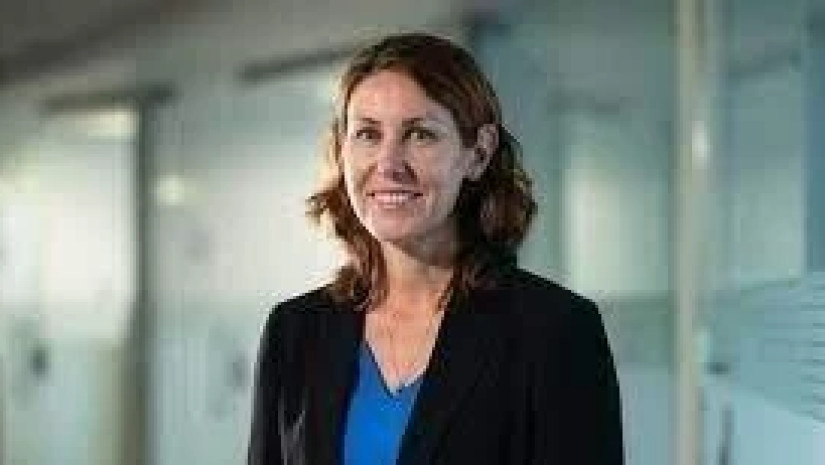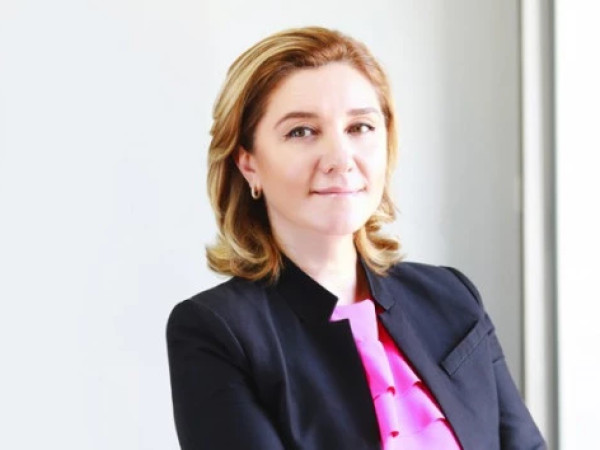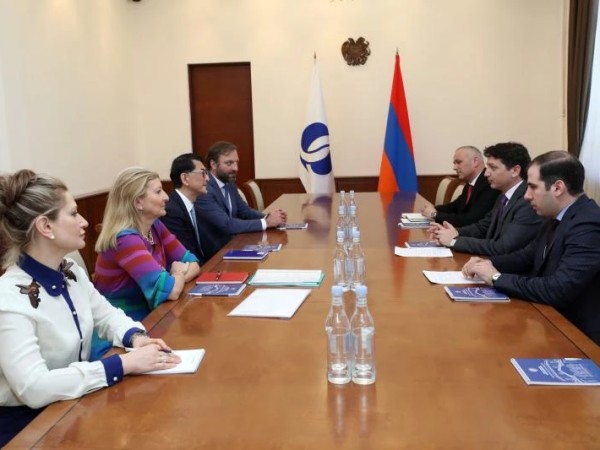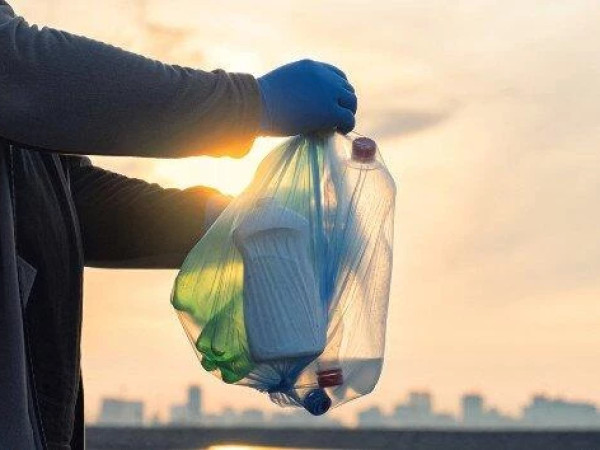It seems that all the IFIs and development partners of Georgia are trying to better coordinate to guide Georgia’s SME sector - and since this community is using the European definition of the sector, there are almost all types of businesses, medium and quite large corporations as well.
EBRD has updated its country strategy for Georgia - focusing on three main priorities. Looking at the document, one can see that quite thorough and extensive work has been done to identify what needs to be changed; whether or not it can be changed and what role will the EBRD and other donors and development partners have in reaching the new targets as identified in the new country strategy for Georgia for 2022 to 2027.
The Checkpoints sat down with Katarina Hansen, EBRD Regional Director for the Caucasus.
We will be talking today about the new strategic directions that the EBRD will have towards Georgia for the coming years. Looking at these key strategic directions, what is new and how does the new strategy build on the previous one if it does?
First, it builds very much on the previous strategy. Everything that we did during the last strategy period which was 5 years has been fed into the development of the new strategy. We have also gone through extensive discussion period with private sector stakeholders, government, the civil society, research institutions, etc. to try to identify the main gaps where the EBRD can play a role to support the Georgian economy. Based on this we have formulated the new strategy, and it comes with three main themes: One is built around competitive and resilient features of the economy; the second one is built around inclusive and integrated features of the economy and the third one is around green and well-governed.
So, now, let’s dig deeper into these strategic objectives. Three main questions: What needs to be changed? Can it be changed? And what’s EBRD’s role in all of this?
First, if we look at competitive and resilience angles, private sector needs to enhance its competitiveness compared to its neighbors, compared to the world economy to be more prominent in the world economy. Here the companies need to become more resilient to economic shocks. The need to be more competitive both internally – regionally and globally. It may be of course a bit challenging for a small Georgian company in a remote area to access world markets but with these last couple of years with digitalization and online working has become so much more prominent the chances have enhanced quite substantially and it’s important to build on this experience and work that everyone has been doing in the last two years and make sure that companies continue to have access to finance, access to skills, access to people they can employ with the right skills for sustainable business development.
If we look at inclusive and integrated aspects, Georgia is a very open economy – usually it’s very good but it’s also very susceptive to external shocks because of the integration. With this, it’s important to strengthen the local business community through continued business related reforms to enhance the investment climate. It’s also very important not to just focus on the big cities but to make sure that we focus on all the cities and all the areas of Georgia – so young people don’t feel they need to migrate for the big cities to find a job but they can really find a jobs where they want to live throughout the country. With this also comes sustainable infrastructure because if the city is livable it needs reliable energy, it needs reliable bus transit so that you get to work properly and all other municipal services that the city may need or a town may need.
When it comes to green and well governed, we work very intensively on diversifying energy supplies in Georgia. We were very active in the hydropower sector before, we now also would like to promote diversification to solar and wind. I think it’s quite important, because renewable energies have their seasonality. It’s also very important that SoE reform continues. It has started but it needs to continue and here we approach what we call well-governed. SoEs need to be functioning on the commercial basis. They may not necessarily need to privatized but they need to have proper commercial standards, they need to generate revenue so that the central budget doesn’t need to support them much with subsidies.
I’ve read the strategy and there are many more reforms than what you are referring to. You mentioned energy sector, in the document you also mention judiciary reform – in these two directions specifically there is quite difficult situation so to say – in the energy sector, for example, we have Namakhvani case; in rule of law we have a refusal of the Georgian government to the EU…
Big projects mean big problems and issues. So, any big project actually benefits from the involvement of one or several international financial institutions, because we have all the procedures to assess environmental issues, to assess livelihood issues and so forth. So, very often there is a benefit involving us or our fellow IFIs in these kinds of projects. We fully understand the complexity. But I just don’t want to comment on Namakhvani because we were not involved and I don’t know the details.
I’m not asking you to comment on either cases specifically. I’m bringing it up as a context – general business climate. I notice that in this strategy there is this focus on more coordinated work of all the IFIs…
Yes, coordination is indeed very important. I think in Georgia we always coordinated very well. But maybe exceptionally so over last year because the needs were so acute last year. So, we established a much closer coordination and every friendship between all the IFIs and now we are much more aware what we do and what others do so that we can make sure that the best IFI for the given task takes care of it. So, it’s indeed very important.
If we talk a little bit more about a general business climate, last year was maybe a lost year in terms of business climate development in the entire world – I’m not talking about Georgia here because everyone was so focused on just getting over the COVID-crisis. And we just look at our business delivery, we did twice as much last year as we do in any normal year. This year I hope the volumes will be more back to normal. Then this needs that the crisis support is not really needed.
But it also meant that while everyone was so focused to get business survive the year and to apply any measure they could, the more general reforms of the business climate were put on the back because people just didn’t have time to do it. It possible also includes all the IFIs – we just didn’t have time because we were in the crisis mode. And that was everywhere in the entire world.
But now, hopefully, it looks a little bit more optimistic. Our business volume this year is back to normal which I see as a very good indication of the optimism in the market. We don’t need to provide or have not provided any crisis support this year which is a very good signal going forward for the economy. Now there is capacity in the market that we make sure to reengage in business promotion and climate improvement – we can hopefully catch up over the year to come.
To look at the overall economy and overall situation in the economy with record breaking inflation and tightened monetary policy – what are some of the expectations looking forward – do you see more certainty, because if we look at the vaccination pace it’s not what the National Vaccination Plan expected it to be…
The pace of vaccination is actually a little bit concerning. It’s probably the most difficult thing to tackle in the Georgian economy right now. Just also because Georgia is so dependent on income from tourism. I really hope the vaccinations will pick up over the winter. So we can have a good tourism season next year. It will really support Georgia’s economic recovery.
What can be done, local currency loans are probably the best way for the local companies to ensure that they will survive because we don’t know where the exchange rate is going to go. It’s a very open economy and it’s highly dependent on what happens in the neighboring countries and the world. And it’s impossible to control.
So, companies now seeking hard currency loans is a little bit risky because we just don’t know where the exchange rate will go – especially if they have revenues in Lari.
We are very much engaged in local currency financing for SMEs and for corporates in general. Both through bonds; through development of capital market tools and normal local currency loans.
So, we think this is of key importance.
With regards to recovery, I sincerely hope that tourism will bounce back. I think that after the lockdowns a lot of people including myself will want to go travelling and it was very encouraging to see that the large number of tourists we had in Georgia last summer – I hope that upcoming winter season will be equally good and I hope that the next summer will see more normal features of tourism.
We will be very keen to support Georgia’s hospitality sector with enhanced skills – also, in the regions because the regions have yet to develop further in terms of hospitality.
So, I sincerely hope that we will have a good health situation in the country coming soon.
Looking at the new strategy, where do you see strengths, weaknesses, threats and opportunities?
The strength is a very vibrant SME community. And we use the EU definition of SMEs – so they can be quite big Georgian corporates. We see a strong entrepreneurial spirit. We see strong strive towards EU compliance towards DCFTA and Association Agreement – this is very important, because it is a very close and big potential market. We also see very good initiatives from many companies to access markets in maybe unusual places. Not everyone is focused on EU but this is also good because people look around the globe to see what they can access as a market.
We see some weaknesses in the composition of the work-force – especially, in newly graduates. I know the work is ongoing both at governmental level and with fellow IFIs and donors to support skill enhancement really – more engineers, agriculture, more technical skills that companies will need to be able to meet the standards of the future. We need to make sure that whoever the Universities now educate that these people educate have skills that will be required in the future. IT, for example – this is a very prominent area which is only growing. So, the more Georgia can do in this area the better it will be.
It’s of course absolutely great that Georgia has a lot of people studying as a law, studying international relations but we also need the engineers, we need the IT staff, we need medical professional and so forth. So there needs to be equal attraction to all these fields of education. This is one of the weaknesses or a challenge, maybe.
The treat is really where the world is today – where this epidemic will go. I sincerely hope that science and vaccines will actually be able to handle the health threat very soon but it’s impossible to say – we will need a crystal ball to say something clever here and I don’t think I could do that.
The opportunity is just the fact that Georgia is such a welcoming country. It’s open for everybody. Nobody needs visa. Everyone can come and open business. I see the most interesting companies reallocating to Georgia right now- we may not finance all the them but we speak with many of them because very often they don’t need finances – we see companies from Belarus, we see companies from Lebanon, and other interesting places relocating to Georgia just because of the openness of the Georgian society, the promising business climate and just the general welcoming atmosphere in the country.
So, this is really something that Georgia can and should build upon and I think many companies in the future will also appreciate this.















